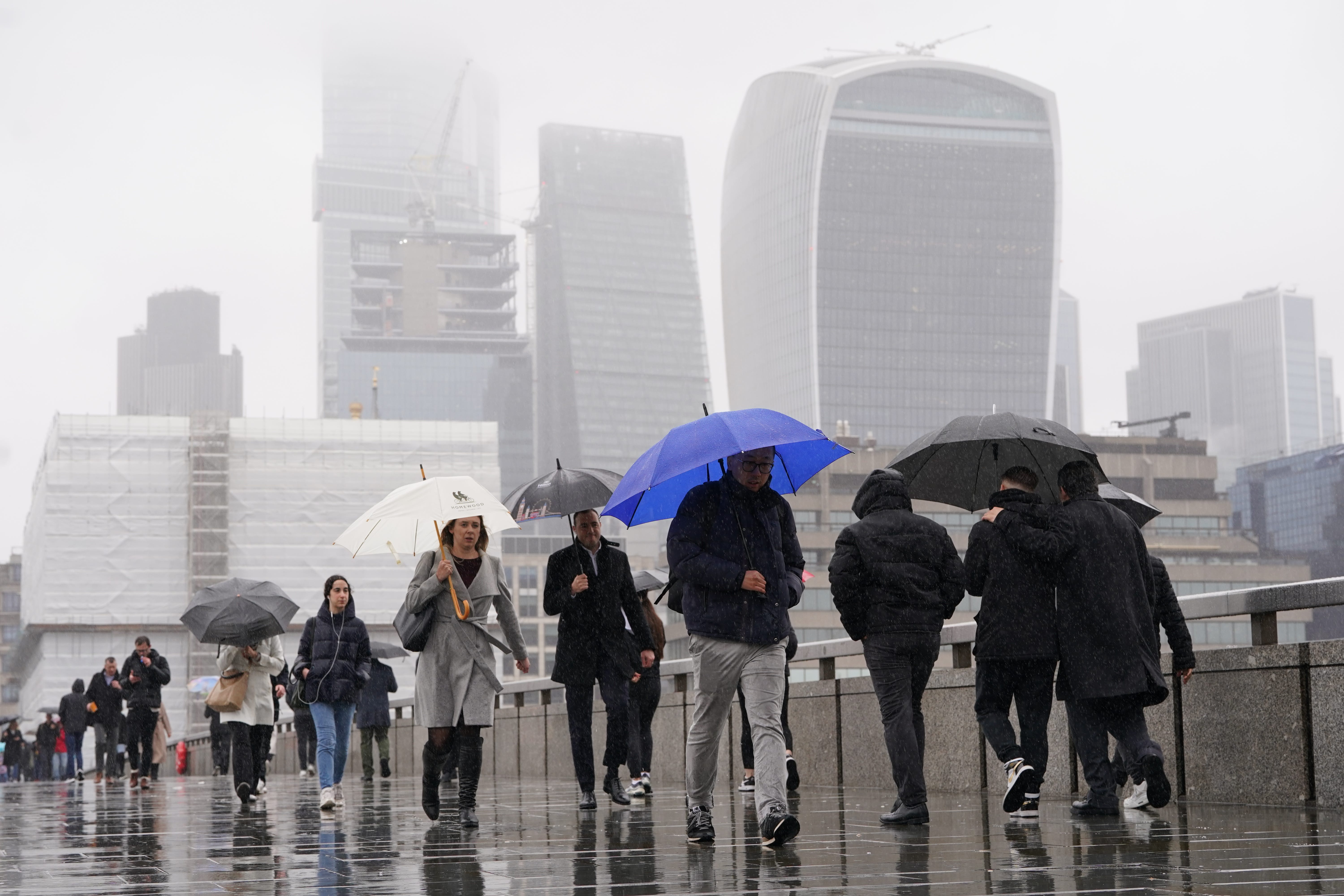UK private sector growth signals economy out of ‘brief recession’, survey shows
The S&P Global/CIPS flash UK purchasing managers’ index reported a reading of 52.9 in March, down slightly from 53.0 in February.

Your support helps us to tell the story
From reproductive rights to climate change to Big Tech, The Independent is on the ground when the story is developing. Whether it's investigating the financials of Elon Musk's pro-Trump PAC or producing our latest documentary, 'The A Word', which shines a light on the American women fighting for reproductive rights, we know how important it is to parse out the facts from the messaging.
At such a critical moment in US history, we need reporters on the ground. Your donation allows us to keep sending journalists to speak to both sides of the story.
The Independent is trusted by Americans across the entire political spectrum. And unlike many other quality news outlets, we choose not to lock Americans out of our reporting and analysis with paywalls. We believe quality journalism should be available to everyone, paid for by those who can afford it.
Your support makes all the difference.Activity across the UK’s private sector has grown steadily this month, showing further signs that the economy has climbed out of last year’s “brief recession”, according to new estimates.
The S&P Global/CIPS flash UK purchasing managers’ index (PMI), closely watched by economists, reported a reading of 52.9 in March, down slightly from 53.0 in February.
The flash figures are based on preliminary data. Any score below 50 indicates that activity is contracting, and any score above means it is growing.
Economists had expected a slightly stronger PMI reading of 53.2 for the month, according to a consensus provided by Pantheon Macroeconomics UK.
The country’s services industry – which spans businesses from pubs, restaurants and hairdressers to transport, real estate and insurance – continued to drive an uplift across the broader private sector.
Further signs of the UK economy having pulled out of last year's brief recession are provided by the provisional PMI data for March
However, growth started to lose momentum in March, which the firms surveyed often said was due to pressure on households’ disposable incomes.
Nevertheless, manufacturing production increased for the first time in more than a year, the survey showed.
It hints that recovery could be on the horizon for factories which have grappled with a prolonged downturn amid tougher economic conditions, and disruption in the Red Sea hitting supply chains.
Chris Williamson, S&P Global Market Intelligence’s chief business economist, said: “Further signs of the UK economy having pulled out of last year’s brief recession are provided by the provisional PMI data for March.”
Official figures showed the country dipped into a technical recession at the end of last year, which is defined as two consecutive quarters of negative growth.
“It is also encouraging to see a more broad-based expansion, with a sustained increase in service sector activity accompanied in March by signs of a tentative return to growth for manufacturing output,” Mr Williamson said.
“However, while recession worries have abated, inflation remains a concern.
“Stubbornly sticky service sector inflation has persisted into March, exacerbated by renewed inflation in the manufacturing sector.”
He said businesses will be wanting to see firm signs of lower wage growth, which has been a key driver of higher costs.
Thomas Pugh, an economist at RSM UK, said: “The PMIs are still pointing to a return to growth in the first quarter of this year, adding to evidence that last year’s recession is already over.
“We expect the economy to gradually pick up steam over the rest of the year as lower inflation, falling interest rates and tax cuts boost consumer spending.”